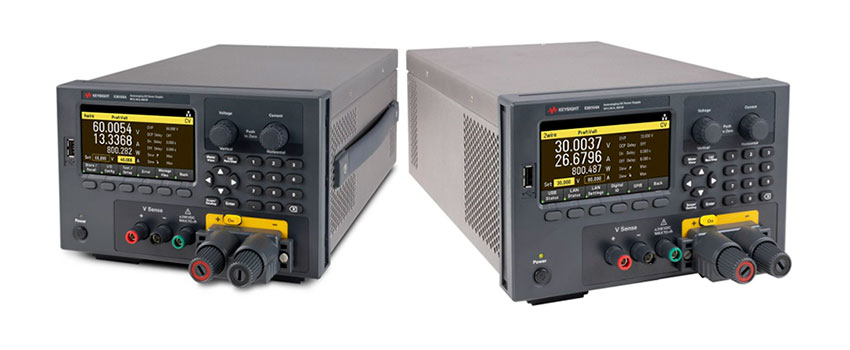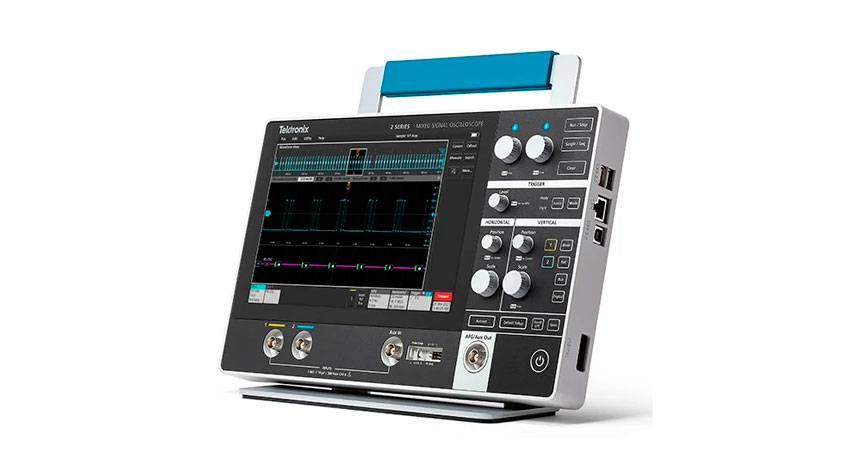Hodaka Denshi is a general trading company specializing in industrial equipment such as electronic measuring instruments and testing equipment.

Japan fell behind in the Heisei era, and their strengths have slowly diminished, but in niche B2B applications and quality sensitive sectors, Japan has still proved their leadership in many respects. Where do you believe the competitiveness of Japanese industry comes from today?
You can call this a strength, but you can also call it the only way for Japan to survive in the tough world and difficult times that we are living in. When it comes to our Asian competitors, Taiwan, Korea and Thailand have the luxury of a young and strong labor force. They can take advantage of cheap labor and capital in order to compete when it comes to mass production.
That’s something that we clearly cannot beat them at. That is how they defeated us, and that's just a simple way of understanding it. The only way that I believe that Japan can survive, and what you would say is their main strength, is really focusing on niche markets and being accurate and precise with where we target our manufacturing and our clientele. Not really just creating products that can be sold in large scale markets, but those with a small and precise focus. For example, if Apple was our client, then we’d create components that only Apple needed. Creating products that are in line with the needs of our clients in the most accurate and precise way. That's what I would like to share.
As the role of Japanese manufacturers has changed, I think it could be said that the role that Japan traders have played has evolved alongside those manufacturers. It’s not enough anymore to provide the logistics and the financing on behalf of these companies. You need to add value in new ways, to match their more specialized style, whether that's through co-creation, R&D or networking. How do you see the role of trading companies in Japan evolving, and how do you distinguish yourself from other traders? How do you add value on behalf of your clients?
I think the best way I can describe the way in which we provide added value is that we really are able to ascertain what our clients need the most, where their priorities are, and then respond in that way to actualize their needs.
For example, if they prioritize cost or delivery, then we make sure to be able to deliver for them in response to that. And of course, depending on the time and the needs, the priorities of our clients change, so being able to respond to the different circumstances of our clients is important.
How do you believe that AI and deep learning can transform the visual inspection field?
Visual inspection is something that Japan has been doing for a very, very long time, so it isn't a new technology. Your question is how AI is changing the technology, and how deep learning can impact visual inspection. I know I'm going into the deeper philosophical questions, but I want to ask you the question, “Do you believe that Japan will continue to keep growing?”
If you look at the long term, Japan is a country where the economy is going to go on a decline for demographic reasons. I really believe when you're looking at economic indicators, you have to consider the direct correlation with the population, so in the long term, Japan economically is going to be on a decline, but in the short term, Japan still has a lot of potential when it comes to increasing its productivity.
Compared to Europe and the US, Japan's productivity is now still not at maturation level so in a sense, it has a lot of room to grow by making use of its industrial manufacturing technologies.
At that level, what will help to increase Japan’s productivity in the short term will be the ways in which it's able to utilize digital technologies, and what is now called DX here in Japan, or AI and deep learning, as you mentioned. I think that is something that is quite worthy of attention. What's very interesting about Japan, and you could say it's unfortunate, but it’s not a country that lets companies profit easily. It makes it very difficult to take the easy route.
We hear from many bigger companies that, of course, they’re answerable to shareholders. They're not able to flexibly adjust which area they focus their business on. As an SME and a trading firm, you're much more easily able to adapt to market demands. In fact, you have to, to survive as a trading company, give clients what they need. Where do you see the opportunities for your business in the short to medium term? You've already mentioned that the automotive industry will be big for electronics. Of course, Japan shines when it comes to semiconductors, but which particular niche area will you be focusing on to further grow your business in the mid to long term?
We've been in the industry 55-56 years now, and we really focused on the measurement field and even in the shift from analog to digital, when you ask that question of whether our measurement technology is still relevant, the answer is yes.
The need for measurement and testing will never disappear as long as there's a product that is made and it needs to be verified. Is it safe? Is it precise? Is it accurate? And from that perspective, I believe that measurement technologies will always be relevant and required. That's our bread and butter.
No matter how great products are developed by our clients, without measurements and verifications, they couldn’t be put on the market.

Keysight's digital multimeters (DMMs)
Cars are becoming more like computers on wheels. As such, electromagnetic interference can have really serious consequences when it comes to the safety of the people operating those vehicles. As a result, EMC testing in the automotive sector has become a critical process. Can you tell us how you're adapting to this change in the automotive sector, and more about your services for automotive EMC testing?
With regards to EMC, there's nothing special that we're necessarily contributing, but our strength lies in the special technologies that we're rolling out when it comes to real time simulation technologies. As we see the trend towards EVs, where vehicles are shifting from engine centric to motor centric vehicles, there's still a lot of innovation and a lot of technological progress to be made when it comes to refining the motor technologies, as well as the batteries.
When it comes to the motor and the batteries, our real time simulation technology plays a great role in the innovation process and the R&D process, so we're looking to really be able to leverage that when it comes to the automotive sector.
When it comes to inspection and measurement, the automotive sector has to meet the strictest of regulatory standards. I think it's the same with the aerospace industry, but cars too, because they're dealing with people's lives, and safety is the most important factor from that perspective. Our technologies are crucial, especially in this sector.
You briefly touched upon EMC as well. When it comes to the automotive sector, with all the electromagnetic waves and signals, they believe that so much information is going to be directed at a single vehicle, and together with EVs, there's also the autonomous trend of driverless technologies.
The machinery needs to process the kind of information that a human being is not able to, so you're going to have to rely on these kinds of technologies. From that perspective too, it's very important to make sure that all of the measurements are accurate, because if those waves are crossing, if the signals are crossed, then you're dealing with the safety of people's lives, especially when you're starting to roll out technology where the information that is being processed by the vehicle is going to determine whether or not it's going to prevent an accident from taking place.
It's not simply the roll of the car, and the automotive sector is going to expand. In many ways, the car is more than simply a machine that carries things or people, having all of these other levels of involvement with communications technologies at such a deep level. In that sense, the automotive sector is also going to continue to expand and is in an exciting time.
When switching from an IC engine to an EV motor with a battery, it generates a lot of heat, so an important issue is how to dissipate that heat safely without affecting the function of the vehicle itself.
I believe that until now the key word was quality, but I believe now the key word is going to be safety, and it's going to be safety-related software and technologies that are going to be prioritized, and highly prized when it comes to inspection and measurement, but also with thermal and heat related technologies and things like that. Whatever is related to safety.
Are you looking for more partnerships with foreign companies that can help you as you look to find solutions for safety in support of next generation automobiles?
When it comes to overseas partnerships, up until now, the trend was to follow where the larger Japanese companies were expanding into, and really being able to support their business or supply them, whether they went out to China or Thailand.
However, now with markets such as China and Thailand continuing to grow and developing strong roots, there is no need any more for that kind of structure. It's actually now more viable to create partnerships with local companies in these industries and markets.
With regards to our midterm plan, we're really putting more effort into Japan right now, the reason being that our clients are returning back to Japan, and they're creating a stronger supply base here.
In a sense, the reason why we expanded overseas was to support our Japanese clients, but now that there's more of them coming back and putting efforts into the domestic side, that is where we are also putting our efforts, in line with them.
We aren't necessarily looking to expand our clientele overseas, or our local client base overseas, but rather, we are looking to see what kind of quality technologies overseas manufacturers have to offer.
We could perhaps import some of those technologies into Japan for the sake of our clients here. That's our strategy when it comes to how the overseas market plays a role in our business. Actually, when you look at it, the largest area where we derive profit is our US maker products. Numbers one and four in our top products lineup happen to be from American companies.

Tektronix MSO Mixed Signal Oscilloscope
Let's say we come back to interview you again on the last day of your presidency. What would you like to tell us about your goals and dreams for the company by that time, and what would you like to have achieved by then?
Actually, this company doesn't have an owner, and it's actually quite rare in Japan for the president to not necessarily be the majority shareholder. For example, I started out as a salaried employee in this company, and I am now serving as president, but I wasn't necessarily coming into it through family connections or as a majority shareholder.
My perspective is that in terms of what the next generation or the next person who serves as president should make their priority, or how they should help the company to grow, are not my business. Those are things that the president should think about on their own initiative. It isn’t my place to pressure or impress upon them or steer them in the direction of my own views. I know it might sound abstract, but from that perspective, what I can provide in terms of some sort of a legacy, would be simply to trust yourself and be decisive.
0 COMMENTS